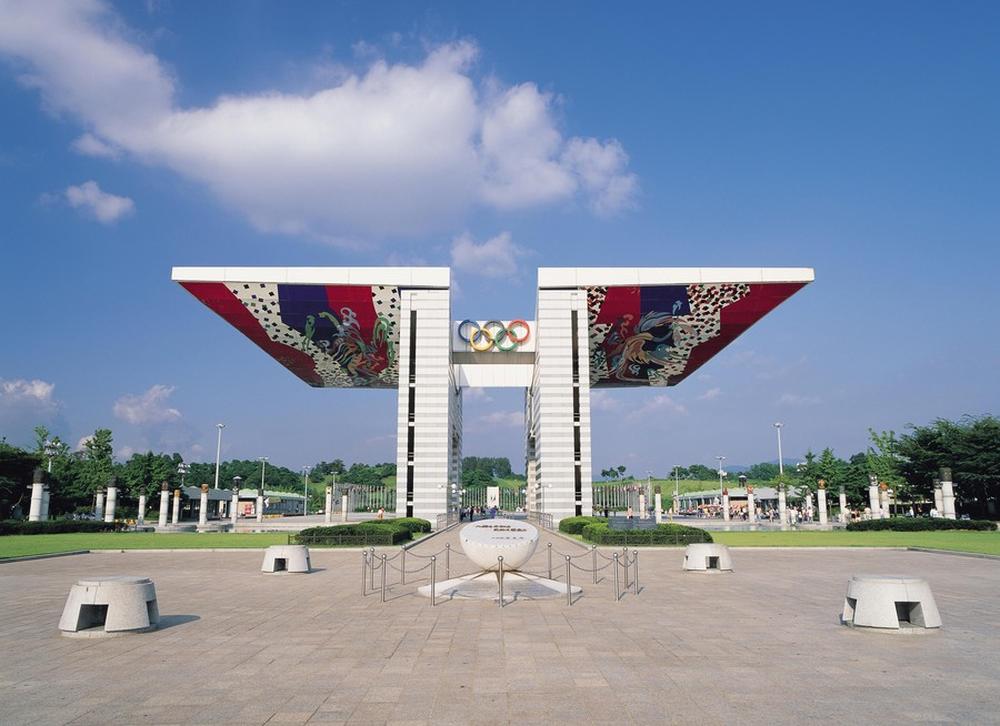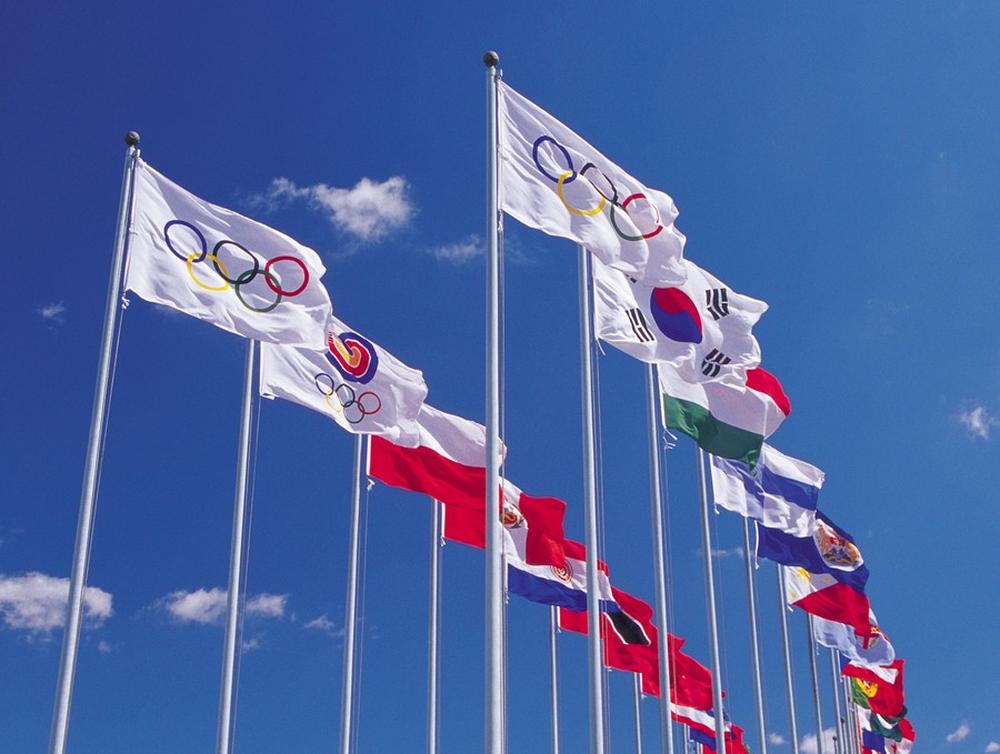- #China
- #Global Issues
- #US Foreign Policy

► A strategy of naming and shaming, especially in dealing with human rights issues, is difficult to achieve in the short-run: thus, expecting the Xi Jinping regime to make quick fundamental changes is difficult especially since the strategy is, by nature, a long-term approach.
► It is imperative that the United States consolidate a multi-layered coalition to promote American leadership and to deal with US-China competition in a number of areas.
► The U.S. boycott of the 2022 Beijing Winter Olympics pose a difficult challenge for the Moon administration because it is trying to use the Olympics to conclude the end-of-war declaration.
The Biden administration is expanding the scope of its value diplomacy as it approaches the Summit for Democracy on December 9. It has announced a diplomatic boycott of the Beijing Winter Olympics scheduled for February 2022 and has urged its allies to join this initiative. The United Kingdom has already passed a resolution in the Parliament for a diplomatic boycott in response to Chinese human rights violations in Xinjiang and Tibet. Recently, Canada, Australia, and EU member states are considering joining the boycott. The purpose of a diplomatic boycott is to publicize the human rights violations taking place within China and, therefore, to change Chinese behavior through a strategy of “naming and shaming.” However, a strategy of naming and shaming, especially in dealing with human rights issues, is difficult to achieve in the short-run. It might be premature to expect the Xi Jinping regime to make fundamental changes immediately as the strategy is, by nature, a long-term approach to raise awareness on human rights abuses in China.
Nonetheless, the Biden administration’s diplomatic decision to boycott the 2022 Winter Olympics aims to achieve two objectives. The first is to restore the state of democracy within the United States. Former President Trump’s refusal to accept the results of the presidential election showed just how damaged American democracy has become. The outbreak of the COVID-19 pandemic has only added fuel to the fire. In the midst of such troubles within the US, President Biden has determined that the objective of his diplomacy will have to be value-oriented, especially to promote democracy. Even if the state of democracy in the US is suffering, he believes that he can create a synergistic effect through the promotion of democracy. The decision to hold the Summit for Democracy scheduled for December 9 can be interpreted in this context.
The second is to cope with the decline of democracy across the countries under the US-China competition. Long-term economic recession linked with income inequality and demographic changes have weakened democratic effectiveness among the constituencies in consolidated democracies. Furthermore, these trends have led to the emergence of authoritarian, populist, and nationalistic leaders to come to the forefront. Authoritarian countries, such as China and Russia, are consolidating solidarity among authoritarian states. China, especially during this pandemic, has undertaken its digital silk road project to spread and share digital authoritarianism with neighboring countries. The decline of global democracy has not only deteriorated the liberal international order, but has weakened America’s hold on global leadership.
In short, interpreting the Biden administration’s boycott of the 2022 Beijing Winter Olympics simply as a response to Xi Jinping’s human rights violations in Xinjiang Uyghur and Tibet overlooks the fundamental changes taking place in terms of the decline of global democracy and the rise of authoritarianism. Moreover, it is imperative to understand that these fundamental changes are closely intertwined with the US-China great power competition.
At the moment, the US-China competition remains a peacetime competition. During this competition, it is imperative that the United States consolidate a multi-layered coalition to promote American leadership and garner support for its own foreign policy in a number of areas polarized by the great power competition. Among America’s allies, however, there are diverging perceptions about the threat and interest vis-a-vis China. This is especially the case of American allies and partners in the Indo-Pacific, since many of them maintain high levels of economic interdependence with China, which presents a huge challenge to form a US-led coalition or unified bloc as in the case of the Cold War. As a result, Quad, Quad Plus, and AUKUS have been formed to serve a specific function or to deal with specific issues. The common denominator of these coalitions is the respect for democracy and the rule of law. Indeed, the United States and NATO allies are coming together in response to Xinjiang Uyghur, Tibet, and Hong Kong, and have also voiced their public support for the importance of the rule of law in the Indo-Pacific.
In this vein, the best Chinese policy for the Biden administration is a policy of engaging Asian countries, excluding China. The level of its engagement will depend on their strategic relevance and identity affinity: how much strategic interests in the economic and security domains will be shared with the United States? How many of those countries have similarities with the US in terms of their identities—such as respect for democracy, human rights, and rule of law? Answers to these questions will determine the level of engagement each regional country would face, and the US would attempt to restore a liberal order with support from those countries with higher strategic relevance and strong ideological affinity. The participants of the Quad, Quad Plus, AUKUS, and D-10, are actually overlapping one another, which include the United Kingdom, Australia, France, Japan, and India. These members are currently restructuring the international system and better equipped to cope with the US-China competition by providing better public goods, establishing a robust infrastructure, and realigning supply chains. In this regard, the United States’ value diplomacy, in the short term, can be interpreted as an effort to foster a safe environment for democratic countries to deal with the threats posed by an authoritarian China and to restore the liberal order in the long term. This value diplomacy is expected to last with the reign of Xi Jinping as well as the protracted US-China competition, as this value is the very common denominator shared by the United States and its allies.
South Korea is also nested within this great power rivalry. However, it has so far refrained from taking a stance regarding the most debated human rights issues in the region, such as the adoption of the national security law and the democratic protests in Hong Kong, as well as the Chinese human rights violations in the Xinjiang Uyghur area. While it has agreed with the rule of law in the South China Sea, it has not participated in the Freedom of Navigation operations. Korea’s reluctance can be seen as the result of its efforts to hedge against the US-China competition. Moreover, it is the result of Korea placing the North Korean denuclearization and the establishment of a peace regime as its foremost priorities, which meant that it had to accommodate China’s role in sustaining momentum of dialogue vis-à-vis the North.
However, the U.S. boycott of the 2022 Beijing Winter Olympics poses a difficult challenge for the Moon administration because it attempts to use the Olympics to conclude the end-of-war declaration. Although North Korea has not shown any interest in this event yet, the Moon administration has enmeshed itself into another dilemma as it attempts to prematurely conclude the end-of-war declaration as a foreign policy legacy as it approaches the presidential election next year. The end-of-war declaration might provide a momentum for resuming inter-Korean dialogue. However, it is unclear just how useful it will be in the long-term negotiations toward denuclearization. At the same time, Korea’s reluctance to make a stance involving the United States’ value diplomacy may end up sending a wrong signal to both the United States and China. Regardless of Korea’s democratic identity and respect for democracy and rule of law, its lack of stance on human rights violations may send the wrong signal to China that it approves of China’s authoritarianism and, thereby, further embolden China. On the other hand, the United States may interpret Korea’s lack of stance as a reluctance to restore the liberal international order. Seoul must not place South Korea’s political identity and values as objects of a diplomatic compromise. Of course, if it believes that the end-of-war declaration can serve as a practical agent to bring about meaningful progress in denuclearization, it can certainly balance the level of its participation in the boycott of the 2022 Beijing Olympics. However, as long as the US-China competition continues, Seoul will definitely face this type of occasion on which it must make clear its position regarding the value diplomacy.
Dr. Kuyoun Chung is Assistant Professor of Political Science at the Kangwon National University. Her research focuses on US foreign policy and Indo-Pacific security issues, including competing regional security architecture, maritime security, grey-zone conflict, and hybrid warfare. She received her Ph.D. in Political Science from the University of California, Los Angeles (UCLA) in 2011. She was previously a lecturer in the Department of Political Science at UCLA (2011–2012), visiting professor at the Korea National Diplomatic Academy (2014–2015), policy advisor to the Vice President of the Presidential Committee for Unification Preparation (2015), and research fellow at the Korea Institute for National Unification (2015–2018). She also joined the US State Department’s International Visitor Leadership Program (2017) and has served as a member of the policy advisory committee of the Ministry of Unification, Ministry of Foreign Affairs, and Korea Institute of Nuclear Non-proliferation and Control, as well as the National Unification Advisory Council. She currently serves as Executive Director at the International Policy Studies Institute Korea (IpsiKor) and Editor-in-chief for the Journal of Maritime Security at the Korea Institute for Maritime Strategy.

